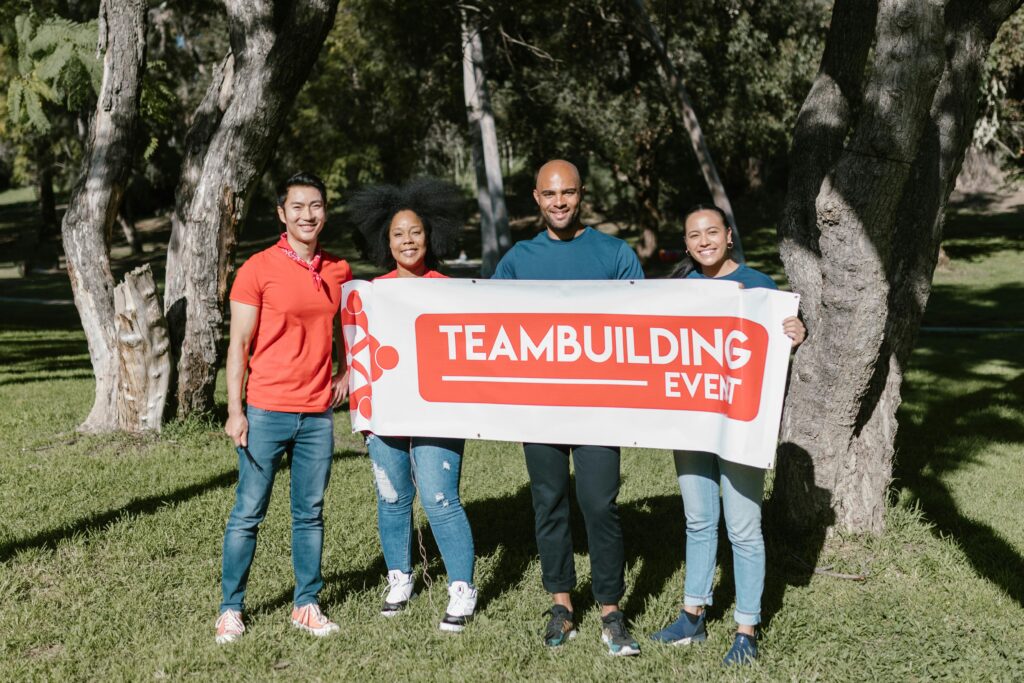Tax Deductions for Experiential Marketing Events to Boost Your Bottom Line
EXPLOrE
Paige Creative is a global event design and production company offering curated & bespoke event experiences.
welcome to the blog
VIEW OUR SERVICES
As a small business owner, I know that every penny counts. Tracking business expenses and maximizing tax deductions is crucial for maintaining financial health. While it’s common knowledge that business expenses like office supplies and equipment are tax deductible, many entrepreneurs are unaware of the potential tax deductions available to business owners planning marketing events and employee retreats.

You might be surprised to learn that events like employee retreats, conferences, or even experiential marketing events for the public all have components that can be deducted as expenses. The key is getting organized and tracking your expenses effectively. When you have a good understanding of what components of these events are tax deductible, it can lead to significant savings.
Let’s talk about where some of these deductions might be hiding.
Tax Deductible Employee Retreats and Conferences
Beyond being an excellent opportunity for team building and professional development, employee retreats and conferences can also offer tax advantages for small businesses. Expenses related to these events, such as venue rental, transportation, lodging, meals, and entertainment, may be deductible.
In addition, the IRS published new guidelines for fringe benefits, like employee rewards. Rewards for top employees cap out at $4,000 per employee which can cover the cost of a retreat at a number of places.
Team Building Activities
When planning employee retreats, including activities aimed at improving teamwork, communication, or leadership skills during retreats can be considered deductible business expenses. Use this as an opportunity to seek out engaging experiences that are both educational and entertaining.

Tax Deductions for Professional Development
Costs associated with attending workshops, seminars, or conferences directly related to the business’s industry or employees’ roles are typically tax-deductible.

Meals and Entertainment
The IRS allows a 50% deduction for meals and entertainment directly related to the active conduct of a trade or business. Therefore, expenses for meals and entertainment during retreats or conferences may qualify for this deduction.

Tax Deductions and Experiential Marketing Events
Experiential marketing events are powerful tools for engaging customers, building brand awareness, and driving sales. But did you know they can also be considered an exempt business expense? Small businesses invest significant resources in creating memorable experiences for their target audience, from product launches to pop-up shops. Fortunately, many of these expenses can be tax deductible.
Venue Rental and Setup
Expenses related to renting event spaces, setting up booths or displays, and hiring contractors for event logistics are typically tax deductible.
Promotional Materials
Costs associated with designing and producing promotional materials such as banners, flyers, and branded merchandise can be deducted as advertising expenses.
Travel and Transportation
If the event requires traveling to a different location, expenses for transportation, lodging, and meals may be deductible.
Marketing and Advertising
Expenses for online and offline marketing efforts to promote the event, including social media advertising, email campaigns, and traditional advertising, are generally tax deductible.
The most reliable place to get up-to-date information about what you can consider a business expense is the Guide to Business Expense Resources on the IRS website. Consult your accountant or tax professional to determine how to use these rules to your advantage.
The Value of Considering Tax Deductions for Business Events
Understanding and leveraging tax deductions for event expenses can have a significant impact on a small business’s bottom line. By strategically planning and documenting event-related expenditures, entrepreneurs can reduce their taxable income, ultimately lowering their tax liability.
Moreover, investing in events can yield long-term benefits beyond tax savings. Employee retreats and conferences can boost team morale, enhance productivity, and foster innovation. Experiential marketing events can create buzz around the brand, attract new customers, and strengthen customer loyalty.
Tips for Maximizing Tax Deductions
Keep Detailed Records
Maintain thorough documentation of all event-related expenses, including receipts, invoices, contracts, and travel itineraries. Many small business owners utilize software like Quickbooks to track business expenses. It’s also important that you retain these records for at least seven years in case you are selected for an audit. The IRS offers detailed guidance about maintaining detailed records for your business expenses on their website.

Consult with a Tax Professional about Tax Deductions
Tax laws and regulations can be complex and subject to change. Seek guidance from a qualified tax advisor or accountant to ensure compliance and maximize deductions.
Separate Personal and Business Expenses
Avoid commingling personal and business expenses, as this can complicate tax reporting and potentially trigger audits. Certain business structures, like sole proprietorships, allow business owners to utilize their personal bank accounts. This can get messy when tracking expenses for items like food or gifts for clients and contractors.
Stay Updated on Tax Laws to Maximize Tax Deductions
Stay informed about changes in tax laws and regulations that may impact deductible expenses for events. Small business owners should carefully consider the tax implications of hosting events such as employee retreats, conferences, and experiential marketing activations.
By identifying and maximizing deductible expenses, entrepreneurs can not only reduce their tax burden but also reap the benefits of investing in these valuable business initiatives. With proper planning and documentation, events can be not only memorable experiences but also smart financial decisions for small businesses.
Planning Your Next Experiential Marketing Event
So, if your most recent tax bill was more than you expected, perhaps this is your sign to plan an employee retreat or experiential marketing event to get a better return on your investment. While event planners are not tax professionals, utilizing an event planner from Paige Creative can help you stay organized and keep track of your expenditures, setting you up for success next tax season.
Planning an event that reflects your brand shouldn't feel overwhelming. This free checklist is designed to help your team stay organized, aligned, and on track as you build an experience that connects and converts
BRAND EVENT CHECKLIST
JOIN THE NEWSLETTER TO RECEIVE YOUR FREE